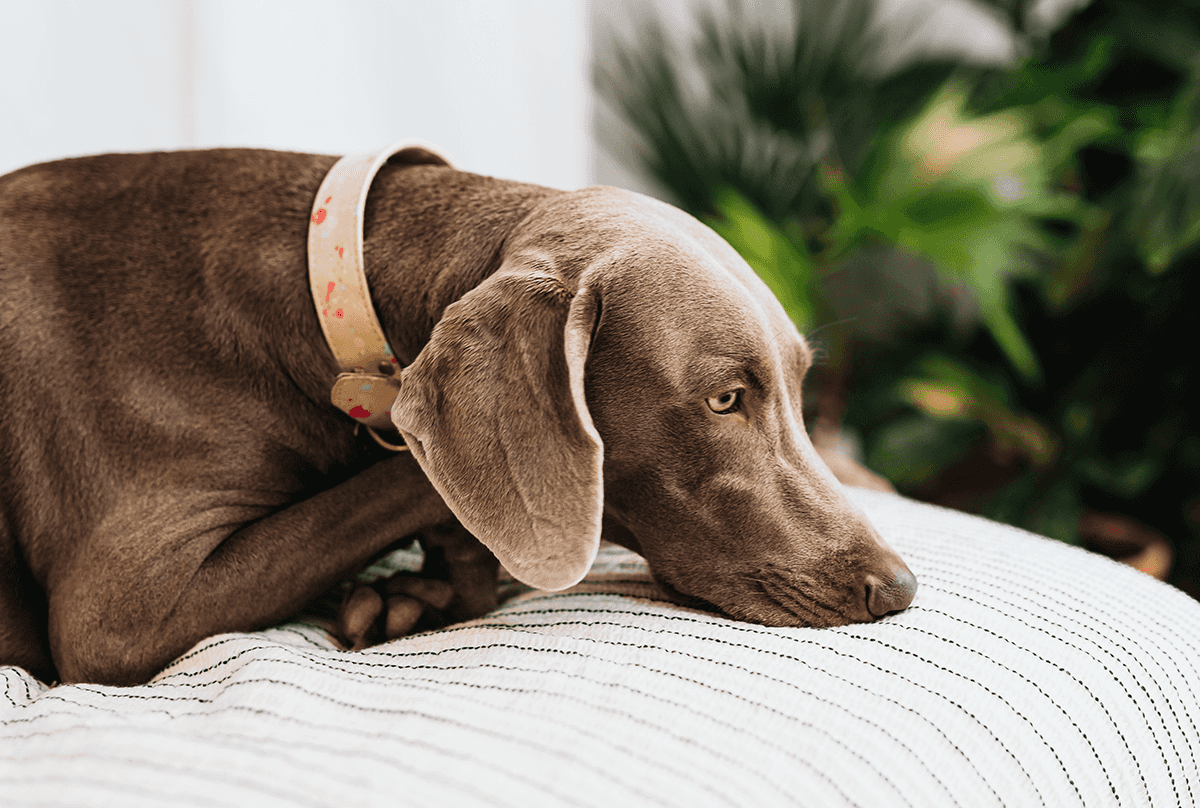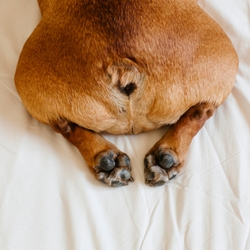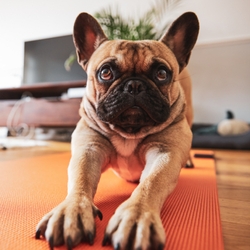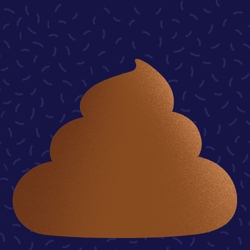
Why is my dog's nose so dry, and what should I do?
Our dog's noses are usually wet and chilly to the touch, but anything from dehydration to seasonal changes could throw things off. Here's what to do when that happens.
We’re pretty used to our dog’s noses being a little cold and wet, a fact we’re jarringly reminded of every time they come in for an affectionate-yet-oh-so-cold nuzzle. But what happens if a close, nose-touching sniff leaves you noticing that your pooch’s nose is a little drier than usual? Should you be worried?
While there’s no need to be overly alarmed, it is important to understand what could be causing your pupper’s dry nose so that you can address it — especially since that wet nose actually helps your dog achieve that super strong sense of smell.
What's causing my pup's dry nose?
To help you get down to the root of the problem, here are a few things to look out for that might be making your pup’s nose a little too dry.
Dehydration
Seems like the obvious answer, right? That’s because it definitely is. It’s pretty easy to fall behind on water intake after a long day of chasing squirrels in the yard, but it’s usually no big deal. Just make sure they always have a full water bowl to go to, and encourage them to drink after any strenuous physical activity.
Allergic reactions
Yes, dogs can be allergic to all kinds of things, just like that one friend who’s allergic to your dog. Certain foods, toys, and products they come in contact with indoors can give your pup the sniffles, as well as more intense reactions. If your dog’s nose usually feels wet and icy to the touch but suddenly has no tears left to cry, evaluate their daily routine and see if they’ve been interacting with any new or unusual substances that they might be having a reaction to.
Weather woes
During the dog days of summer, your pup’s sniffer can definitely suffer from the same sunburns we humans try to avoid all season. But winter brings more worries, between the cold, dry air outside and the easily-excessive heating indoors. If your pooch is spending too much time in front of the fireplace, it might be worth humidifying the air in your home to counterbalance the dry heat.
Breed-specific issues
Certain breeds are known to have trouble keeping things moist in the nasal area. Brachycephalic breeds like pugs and bulldogs struggle to keep their noses wet due to their shorter-than-average snouts. Other breeds like poodles and lhasa apsos tend to get their tear ducts clogged up, which can also lead to a dried up snoot.
Morning breath
When they’re fast asleep, your dog’s not super on top of the whole nose-licking thing, so they’ll probably wake up with a little nose crust to match their eye goo. Even if you notice a lack of moisture while your pup’s passed out, it’s probably safe to go ahead and let sleeping dogs lie, and it’ll all be better in the a.m.
What can I do about my dog's dry nose?
Once you’ve identified the cause of the dry nose, it’s easier to figure out how to remedy the situation. Some issues — dehydration, allergic reactions — might simply call for some lifestyle changes or attention to detail. Others, like breed-specific dryness, might call for something a little more proactive. For example, there are nose balms that can be used to moisturize a constantly dry nose. You’ll definitely want to ask a professional before putting any new healing creams or remedies on your pup’s nose since they’re pretty likely to lick whatever’s up there and you want to be sure it’s safe for their stomach, too. (Barring any allergies, we recommend trying coconut oil as a start.)
NOTE: While a dry nose may not always be a sign of serious trouble, there’s still a chance that a dry, flaky, cracked nose can be an indicator of something much more serious. If you’ve noticed other health problems in conjunction with a crusty sniffer, or if the issue is prolonged despite your best efforts to resolve it, contact your vet.





Comments: